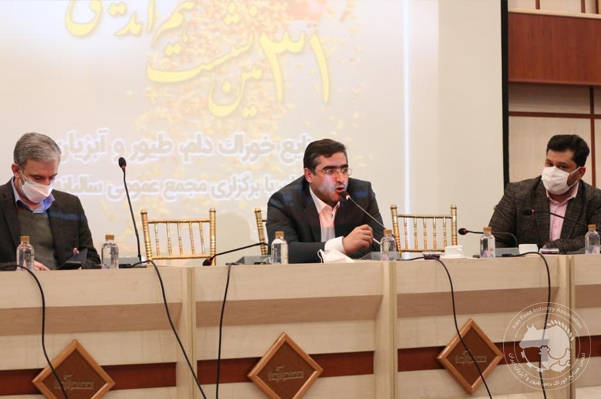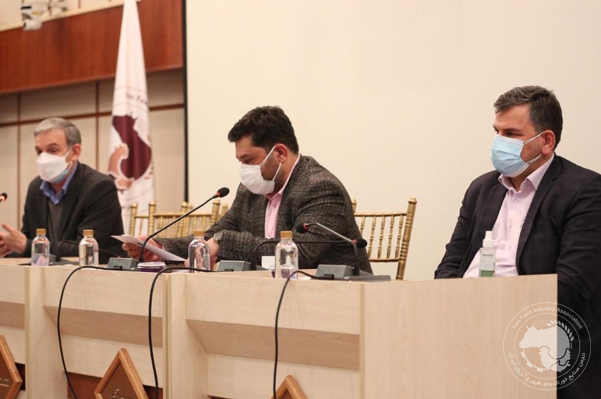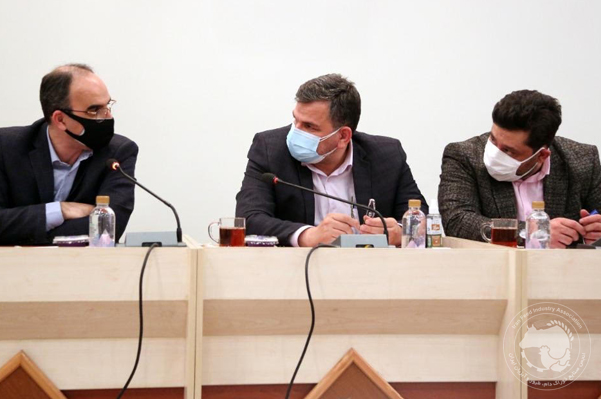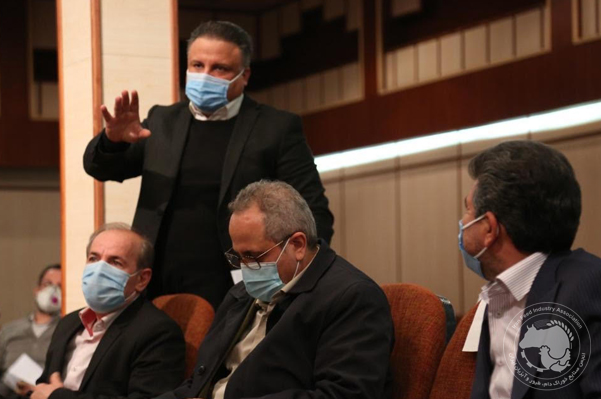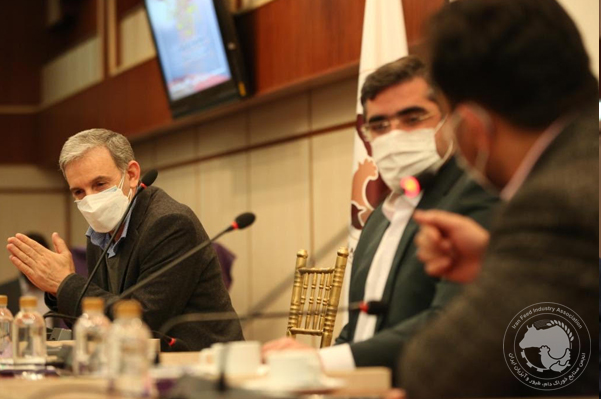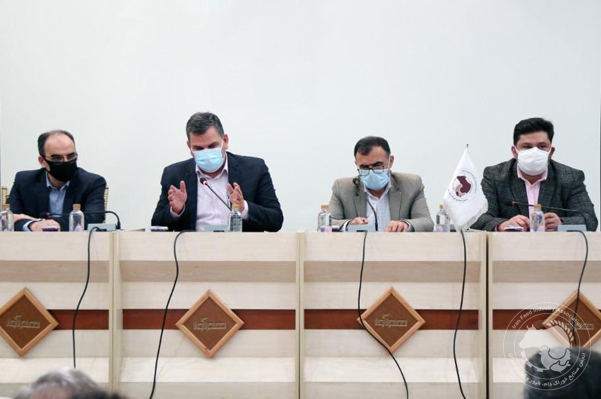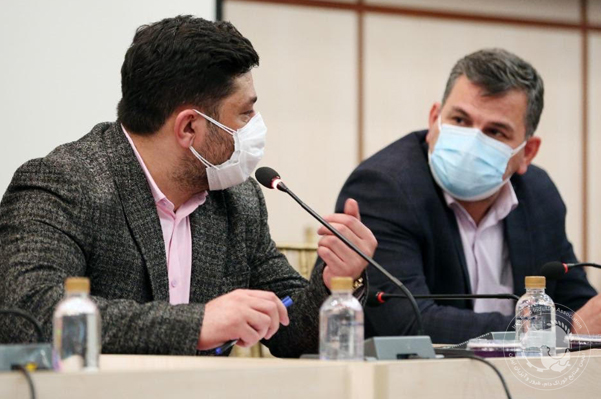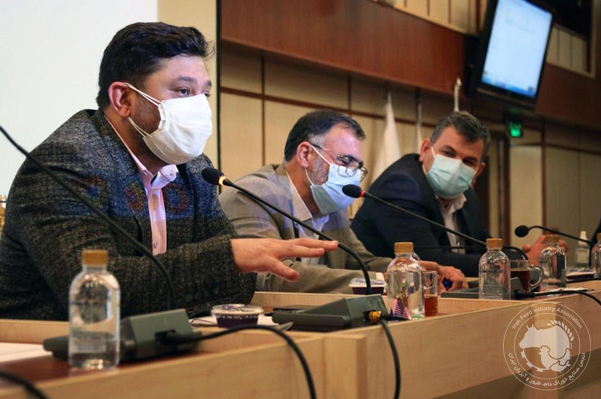31st Symposium and Annual Assembly meeting of the Iran Feed Industry Association
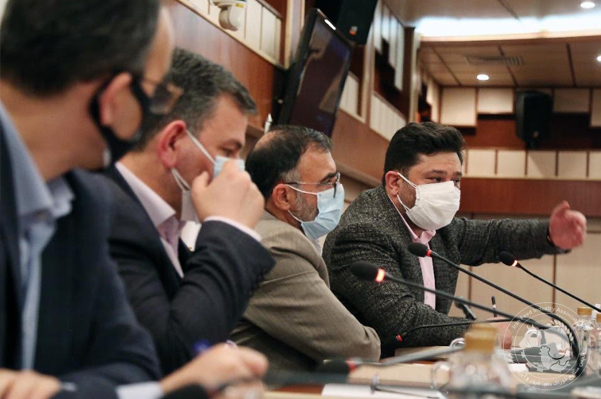
On Tuesday, February 16th, The Iran Feed Industry Association hosted a group of economic decision makers and the top animal feed manufacturersin its 31st Symposium and the Annual Assemblymeeting.
In this ceremony, Dr. Alizadeh, Chairman of the Livestock and Poultry Committee of the Agriculture Commission of the Islamic Consultative Assembly; Dr. Sadeghi Niaraki, Deputy Minister in Industrial Affairs to the Ministry of Industry, Mines and Trade; Dr. Gilanpour, Deputy Minister of Processing Industries and Agricultural Business of the Ministry of Agriculture; Dr. Rezaei, Deputy Minister for Livestock Production of the Ministry of Agriculture – Jahad; and, Dr. Makenali, Head of the Iran Veterinary Organization, addressed the problems and concerns of producers and shared their views on future plans with the audience.
The outlines of some of the important issues that were read in the final statement of the ceremony are as follows:
■ Stopping the allocation of 4200Tomans currency and implementing the one-rate policy;
■ Allocating resources from the elimination of preferential currency to pay cash subsidies to vulnerable groups to purchase only livestock products (milk, meat and eggs) and contribute to national products based on a specific program;
■ Considering the continuation of the allocation of 4200 Tomans in the next Iranian year (1400); it must be focus on accurate identification of the target sector in the distribution of livestock inputsin order to avoid repeating past wrong experiences in the field of livestock input allocation by accurate and timely modification of the market system (BAZARGAH);
■ Based on the remarks of the wise leader of the revolution, the potential and actual capacity of feed mills must be used to increase the production of livestock inputs in the country with the aim of increasing the country's self-reliance in this area;
■ Prohibition of production of animal feed, poultry and aquatic products in unauthorized units with the aim of promoting health and food security of the country, especially in the field of aquaculture;
■ Implementing the decision of the country's market regulation headquarters and announcing a two-year action plan to prevent the sale of raw animal inputs with the aim of reducing the country's dependence on livestock inputs and improving the quality and quantity of protein products;
■ The realization of the slogan "healthy feed - healthy animals - healthy food - healthy people" requires the use of micronutrients and standard healthy ingredients to minimize the risks to livestock and humans.Therefore, banning the production of feed additives and raw materials for animal feed in unauthorized units and distributing low-quality goods should be a priority for the responsible organizations;
■ Implementation of zero tax rates and modification of energy rates and tax coefficients in feed mills as in other agricultural sectors with the aim of reducing complex administrative bureaucracies and increasing competitiveness;
■ Funding of 100 billion Tomans for the share of the public sector in the National Fund for Supporting the Development of Investment in Iran Animal Feed Mills From the budget of development funds of the Ministry of Jihad Agriculturein 1400;
■ Assigning a unique code for wage and contract companies and issuing contract operation licenses with the aim of using the empty capacity of feed mills as well as helping to promote feed in rural units;
■ Supply of soybeans to full fat soy producers;
■ Increase the shelf life of manufactured products;
■ Payment of at least 22,000 billion tomans of working capital facilities and 2,000 billion tomans of fixed capital facilities to upgrade machinery and equipment to livestock, poultry and aquatic feed mills, from other sources released due to the elimination of subsidized currency;
■ Exact determination of import needs of feed mills and reputable commercial companies in the form of chains (from farm to fork) and coordination of involved organizations with the process of allocating currency and importing raw materials based on proper management of order registration and prevention of Economic Rent areas;
■ Minimization of import duties on raw materials and machinery required by the animal feed production sector of the country;
■ Changes in the process of importing monocalcium phosphate and exporting products that are all made from domestic raw materials or free currency;
■ Targeted determination of at least 40 billion Tomans in the budget of the Ministry of Jihad for Agriculture in 1400 for technical supervision and promotion of society's knowledge and belief in the role of livestock, poultry and aquatic feed industry in inclusive development;
■ Reforming the laws and reduce complex administrative bureaucracies to register products and license production of new products such as poultry concentrate with a concentration of 1 and 1.5 percent in the country's veterinary organization;
■ Improving feed pricing methods and changing the ability to modify the market system according to the tolerance of freight prices in different provinces of the country;
